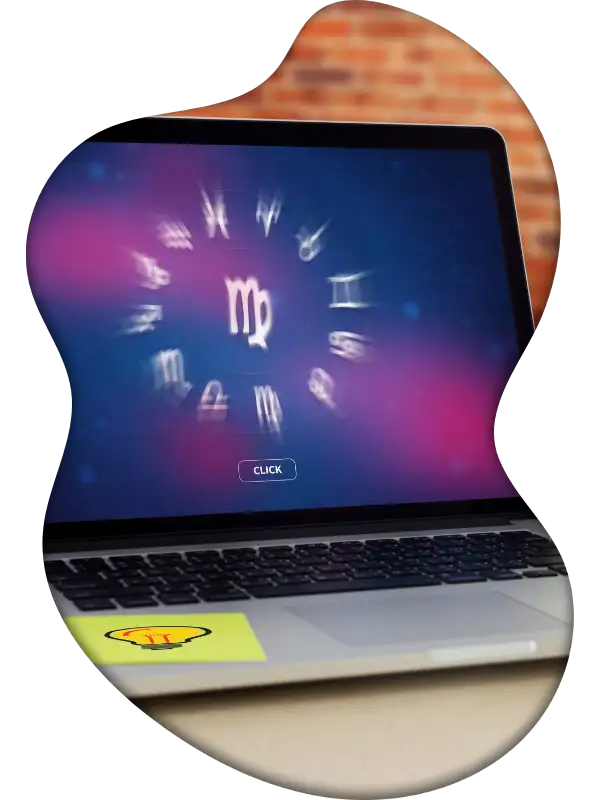[toc]
Precursor of Event
In horary astrology, when questioning the future state of an object or circumstance, we examine the current state of the planets as if the chart were a snapshot of the future. For instance, in a question about the profitability of long-term investments, we focus on the 2nd house ruler, as if it showed the prospective finances after the investment period ends. The ruler’s current celestial state indicates prospective profit or loss.
This same principle applies in natal astrology, where the positions of planets at birth are considered significators of future circumstances.
For example, if the ruler of the second house is debilitated, it suggests future financial hardship. Conversely, the ruler of the second house in excellent condition indicates future wealth.
Since multiple planets signify the same thing (money), some planets portend poverty, while others, wealth. When a particular planet manifests, the financial condition starts to change according to the state of the significator. During periods when none of the financial significators are active, the native’s financial state changes randomly, influenced by external factors. But it returns to its determined course when the financial significator comes to the stage again.
Therefore, planets in natal astrology act as precursors of future significant events. For example:
- If the ruler of the 7th house is dignified, it will bring new love or support from a partner at an appropriate time.
- If the ruler of the 7th house is debilitated, it will create conflict—a fight with an enemy or divorce (if the querent is in a relationship by then).
- If the ruler of the 7th house is in a moderately unfavorable condition, once it comes to the stage of life, it will start creating obstacles in relationships. And if there are no relationships by then, it will have no effect. As always, the context has the final say in the forecast. If the current circumstance doesn’t allow the event to happen, the event won’t happen.
Regarding unfavorable houses, planets act in reverse.
- If the ruler of the 12th house of illnesses is in terrible condition, it will create the most severe illness possible with dire consequences.
- However, if the ruler of the 12th house is in an excellent state, it acts against the 12th house. According to its favorable nature, a dignified planet cannot create evil things. On the contrary, it can relieve the course of the disease or even stop it entirely (if the native is ill by the time this planet manifests). Even if such a planet is determined to cause an illness (if strongly conditioned to diseases by the 12th house), it will realize a short-lived disease with a favorable outcome.
Thus, planets in natal chart act as precursors of future events: they either portend to realize what the house signifies or contrary—to hinder or even nullify the circumstances of the house:
- Accidentally beneficial significators produce the good in favorable houses—money, career, family. Malificial significators produce maximum harm in unfavorable houses—severe illnesses, violent death, etc.
- Accidentally beneficial significators act against unfavorable houses and mitigate or nullify their harm—they liberate from prisons, relieve illnesses, and save from death. Malificial significators act against favorable houses—they ruin financial savings, hinder career growth, etc.
So, our task as astrologers, when looking at the chart, is to understand the following:
- In which area of life will the planet most easily manifest itself?
- What it will do in this area of life—create, destroy, or hinder.
Close Aspects
In horary astrology, close aspects show favorable or unfavorable influences on the subject from the other planets. For example, there might be a beautiful house, but it is hard to sell because it receives opposition from the debilitated ruler of the 6th house (the neighboring area of the house). The house itself is lovely, but directly opposite it is a park where homeless people frequently reside. This unpleasant detail confuses customers and hinders sales.
In natal astrology, we cannot interpret close aspects as the influence of specific circumstances on a particular object, as in horary. Remember, planets in the absence of context act as precursors of events rather than the significators of particular objects.
Consequently, when a malefic planet receives an unfavorable aspect, its negative effect intensifies. A favorable aspect can mitigate the negative promise of such a planet.
N.B.: When I say “favorable/unfavorable” aspect, I imply the cumulative effect of the aspect due to the celestial state of the aspecting planet, the form of the aspect, and the sign it falls into.
For example, imagine the ruler of the 12th house (illness, imprisonment, exile) receives a favorable trine from the noble ruler of the 11th house (friends and allies). Whenever the native falls ill, encounters legal trouble, or needs to leave the country, friends come to the rescue. As a result, illnesses pass more quickly, time spent in prison shortens, and forced immigration is easier to cope with due to the generous help of friends.
Without knowing particular details, we regard close aspects as factors shifting the significator’s celestial state for better or worse.
Thus, the debilitated planet in the 7th house may deny marriage, but favorable aspects help reduce the denial effect to minor relationship obstacles.
The Dispositor of the Planet
In horary astrology, we sometimes consider the dispositor of a planet as a factor that changes the condition of the significator. For instance, in a query concerning the husband’s well-being, we might observe that he feels terrible—his significator is in exile. The dispositor of the sign it occupies is the cause of this detrimental state. Let’s presume that the husband’s dispositor governs his 10th house—his project, to which he devotes himself so passionately that he is left depleted.
However, if the dispositor is in excellent condition, indicating that the project is highly successful, this state of affairs uplifts the husband and makes him feel better. The scenario would be markedly different if the dispositor were debilitated.
As you can see, in certain instances, provided the context supports it, the celestial state of the dispositor can impact the condition of the significator.
In natal astrology, we lack such specific contexts. Hence, when examining the chart in a broader sense, we always consider the condition of the dispositor as a factor that influences the celestial state of the significator. For example, the ruler of the 10th house in Sagittarius with Jupiter in Pisces will yield greater success than the same ruler of the 10th house in Sagittarius with Jupiter in Gemini.
The significator’s dispositor may represent the surrounding circumstances within which the significator operates. We’ll refer to this principle as the planet always manifests itself through its dispositor.
Universal Benefics and Malefics
As you’ve seen in horary astrology, planets sometimes manifest not as accidental significators but as universal ones. For instance, in search horaries, we often prefer natural significators of lost items to the ruler of the 2nd house. In relationship questions, we assign the Sun and Venus as the main characters of man and woman according to their universal significance.
Occasionally, in the natal chart, planets take on universal significance. For example, Saturn during a specific period may represent loneliness according to its universal nature. Venus—the planet of love—may bring new romance in a particular year, even though, accidentally, it may denote long journeys.
Although Saturn governs boundaries and structure, it also represents decay, aging, dirt, restricted circumstances, illness, death, slavery, imprisonment, etc. Its destructive significations outweigh its constructive ones. The same applies to Mars.
For this reason, two planets—Saturn and Mars—are called universal malefics, while all other planets are considered universal benefics.
Since the natal chart lacks an ultra-specific context, we cannot predict in advance whether a planet will manifest as an accidental or universal significator in current circumstances. But we know that any planet in the natal chart will manifest its universal qualities sooner or later. It means that, to some extent, any planet contributes its universal qualities to its significance in the natal chart.
Therefore, Saturn and Mars are initially considered more destructive planets than all others. It means that when assessing a planet’s celestial state, we also consider whether it is universally malefic or benefic, something we have never done before in horary astrology.
For example, Venus peregrine, without any aspects from other planets, is considered neutral—it neither creates nor destroys matters of the house it occupies or rules. Under the same conditions, Saturn peregrine is already a destructive planet—according to its universal nature, it delays marriage in the 7th house and creates financial constraints in the 2nd.
Celestial State Assessment Example
To see the assessment of the celestial state in practice, read this article "Celestial State Assessment Example".


